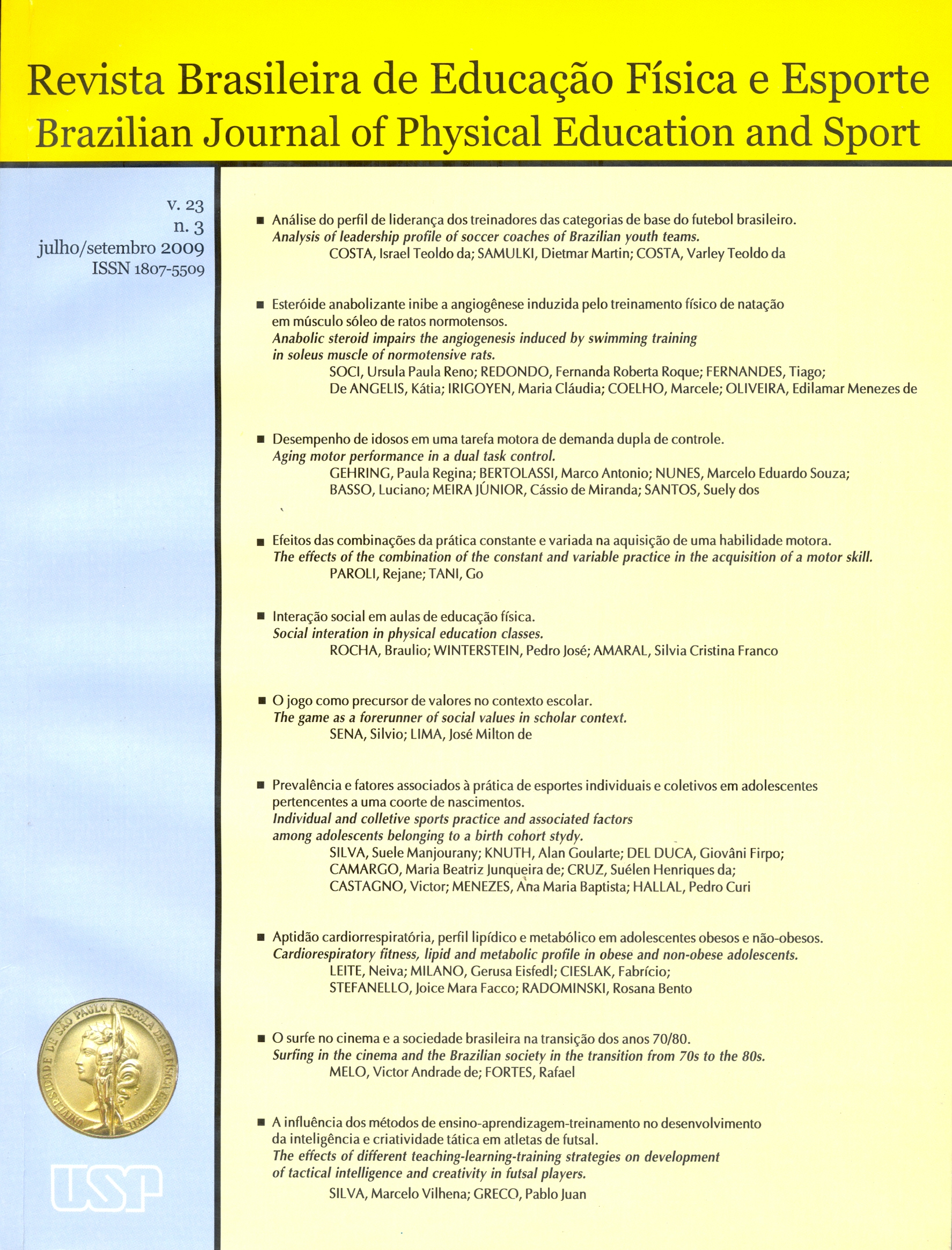Efeitos das combinações da prática constante e variada na aquisição de uma habilidade motora
DOI:
https://doi.org/10.1590/S1807-55092009000300004Palabras clave:
Estrutura de prática, Aquisição de habilidades motoras, Processo adaptativoResumen
Os efeitos de diferentes estruturas de prática na aquisição de uma habilidade motora foram investigados em um experimento em que a prática foi manipulada no que se refere à variabilidade. O delineamento constou de dois grupos de prática combinada (constante-por blocos e constante-aleatória) e de duas fases de aprendizagem (estabilização e adaptação). Sessenta estudantes universitários praticaram uma tarefa que consistia em tocar sensores de forma sequencial em integração a um estímulo visual. Para a realização da tarefa foi utilizado o aparelho de "timing" coincidente para tarefas complexas. O desempenho foi avaliado mediante três medidas de erro: absoluto, variável e de execução. O" timing" relativo e sua variabilidade foram utilizados para avaliar a macroestrutura do programa de ação da habilidade ao passo que a microestrutura foi avaliada pela variabilidade do tempo total de movimento. Os resultados mostraram que, ao variar a tarefa em seus aspectos perceptivo (velocidade do estímulo visual) e efetor (sequência de toques), a prática constante seguida de prática por blocos apresenta, na fase de adaptação, melhor desempenho em relação ao número de acertos de execução do que a prática constante seguida de prática aleatória, indicando, portanto, que a primeira proporciona mais condições de adaptação a uma nova tarefa motora.Descargas
Los datos de descarga aún no están disponibles.
Descargas
Publicado
2009-09-01
Número
Sección
naodefinida
Licencia
Todo o conteúdo da revista, exceto onde está identificado, está licenciado sob uma Licença Creative Commons (CC-BY)
Cómo citar
Paroli, R., & Tani, G. (2009). Efeitos das combinações da prática constante e variada na aquisição de uma habilidade motora . Revista Brasileira De Educação Física E Esporte, 23(3), 221-234. https://doi.org/10.1590/S1807-55092009000300004


